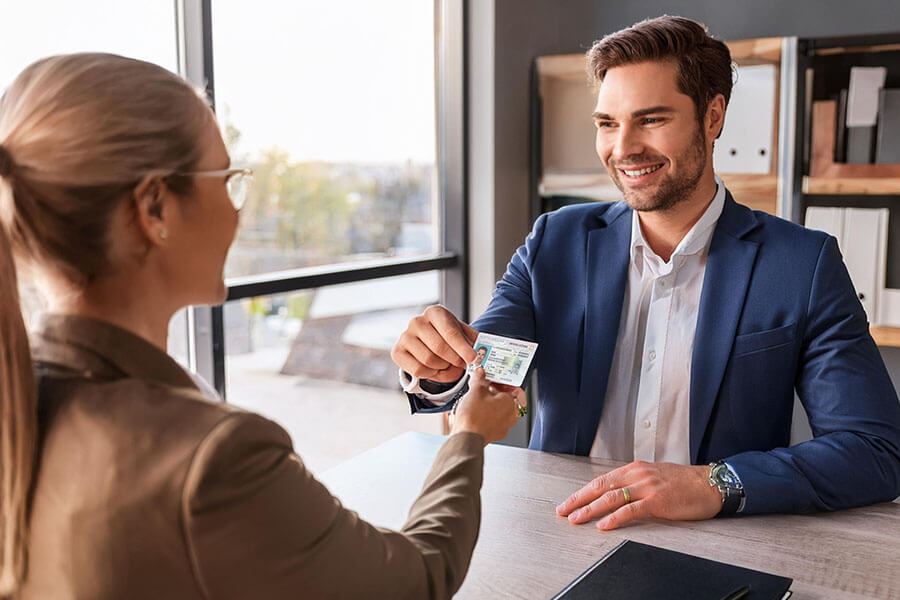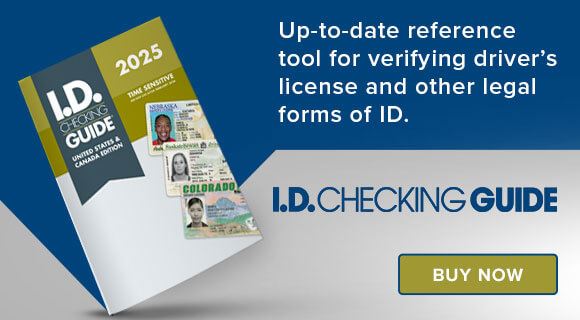
Identifying a signer is the most important part of your duties. But can you rely on personal knowledge to identify a co-worker you’ve known for six weeks? How often do you need to ask for ID from a supervisor, co-worker or customer? Here are helpful guidelines for navigating tricky ID situations in the office.
Do you always need to ask for ID?
If you’ve worked with a coworker or supervisor long enough, or if you’ve notarized their signatures in the past, do you still have to ask them for proof of identity? The answer depends on the ID rules for your state:
- If you’re commissioned in a state that allows you to identify signers through personal knowledge, you don’t have to ask coworkers for identification documents as long as you’ve known and interacted with them long enough to be confident of their identity.
- If you’re a California Notary, regardless of how well you know the signer, they must present state-authorized identification documents or use credible identifying witnesses — who must present state-authorized ID. Also, any credible identifying witness in California used for notarization must present ID to the Notary from the statutory list of identification documents in state law.
How personal does ‘Personal Knowledge’ have to be?
So if you want to use personal knowledge to identify a coworker during a notarization, how well do you have to know them? Unfortunately, definitions of personal knowledge in the law often require you to make a judgment call on how well you have to know an individual for them to qualify.
For example, Florida defines personal knowledge as “… having an acquaintance, derived from association with the individual, which establishes the individual’s identity with at least a reasonable certainty.” Other states, such as Texas, permit Notaries to use personal knowledge to identify a signer but do not provide guidelines for doing so in state laws. In states where definitions don’t tell a Notary exactly what to do, you must often use your own discretion to decide.
Obviously, personal knowledge should not be used for a signer you met for the first time only a few hours or days ago. This leaves a lot of gray areas, however. What about a coworker who you don’t speak with often, but who you see regularly at your office? Or someone you’ve worked with closely, but who was only hired a few weeks ago?
Here are some questions to help you determine if you can notarize for a coworker using personal knowledge:
- Have you met them face-to-face before?
- Have you interacted with them more than once?
- Do you know them well enough to know what duties they perform at your workplace?
- Have you seen and interacted with them enough that you feel confident in their identity?
- Have you interacted with them around other coworkers who know them to be the individual they claim to be?
If the answer to any of the above is no, then you may want to reconsider identifying the signer through personal knowledge.
If you are not certain you know someone well enough to rely on your personal knowledge, be safe and ask them for an ID instead. You won’t get into trouble for erring on the side of caution. However, you could easily get into trouble if you say you know someone you barely know and it turns out they weren’t that person.
What about important clients?
While it’s important to treat clients well, breaking the law — including Notary laws — for them is a big no-no. Unfortunately, sometimes well-intentioned supervisors ask Notaries to avoid asking for ID when notarizing a client’s signature. Maybe the boss doesn’t want to embarrass the client or mistakenly believes that you don’t need proof of identity they don’t think is necessary.
But don’t break Notary rules for a boss or client. Doing so puts your commission in jeopardy and could result in lawsuits against you, your employer or even the client if there are problems with the document later.
No matter the signer’s relationship to an employer, you must always identify them according to the rules of your state.
David Thun is the Editorial Manager with the National Notary Association.


Related Articles:
Notarizing on the job: What you and your boss need to know
Quiz: Sorry, no can do!
Additional Resources:
The Notary Public Code of Professional Responsibility
NNA Hotline